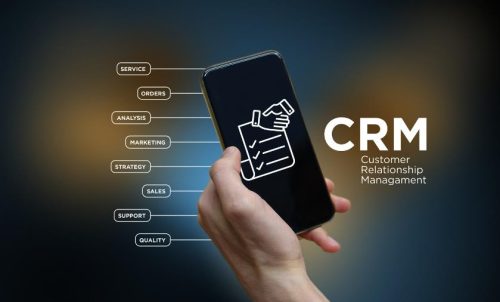Table of Contents
It is no secret that choosing a B2B eCommerce solution for your business is not an easy task. Numerous different platforms are available, each enticing you with a dazzling array of features.
To make matters worse, the needs of B2B businesses differ significantly from those of B2C, but that does not stop some developers from trying to convince you their B2C solution is the one you need.
This article will navigate you through the complex world of B2B eCommerce solutions. It discusses the features your chosen platform should ideally have and show you some of the most popular ones currently available.
Fifteen Key Features of Robust B2B eCommerce Solutions
The following are fifteen key features that any self-respecting B2B eCommerce solution should ideally possess. Please remember that no two businesses are identical, so use the list to prioritise the features most pertinent to your company’s particular needs.
 1. Proprietary versus Open-Source Code
1. Proprietary versus Open-Source Code
The code of proprietary software cannot easily be modified, unlike open-source software, which can be accessed and altered by anyone. Therefore, proprietary software is more difficult (or even impossible) to adapt to your particular use case.
2. Ability to Scale with Your Business
As your business grows, your B2B eCommerce solution must be capable of expanding with it. Therefore, it needs to be capable of managing things like multiple brands with complex organisational structures. Furthermore, if your business trades internationally, the solution must be able to deal with several currencies, taxations, and languages.
3. Ability to Adapt to Specific Business Requirements
Your chosen solution should allow you to accommodate all your business needs without requiring the services of a developer. For example, you may wish to customise the online portal to match your company’s branding, or you may need specific workflows or payment options for certain customer types.
4. Multiple Deployment Options
Solutions with multiple deployment options (cloud or hybrid) allow you to easily switch to a different deployment model while retaining full control over data and security.
5. Vendor Lock-in
Some B2B eCommerce solutions have integral restrictions that prevent the use of third-party software, which results in reduced flexibility. This is known as vendor lock-in. Solutions that do not have vendor lock-in offer greater flexibility for integrating external software and using developers to make customisations.
6. Integral CRM
 An integral CRM allows for more opportunities to automate and gain insights into your customers while reducing the resources and time needed to integrate an external CRM solution.
An integral CRM allows for more opportunities to automate and gain insights into your customers while reducing the resources and time needed to integrate an external CRM solution.
7. Workflow Automation
Workflow automation helps streamline several processes, for example, order handling, approvals management, and invoicing. The result is significant reductions in time, cost, and data entry errors.
8. Flexible Pricing Engine
Good B2B eCommerce solutions feature a pricing engine capable of creating tiered price lists and managing complex pricing strategies for various customer groups and levels.
9. Ability to Manage Multiple Organisations
 Multinational businesses operating across several countries need a solution that can handle different currencies and tax authorities. Similarly, companies with multiple sub-brands and divisions can also benefit from a platform with multi-organisation capability.
Multinational businesses operating across several countries need a solution that can handle different currencies and tax authorities. Similarly, companies with multiple sub-brands and divisions can also benefit from a platform with multi-organisation capability.
10. Customer Hierarchy Management
Customer hierarchy management allows you to set up account structures, add authorised users, and create custom purchasing rules for each individual customer.
11. Search Facility
A site search facility not only allows customers to locate the information they are looking for easily but also provides you with insights into their online behaviour. Such insights are invaluable for marketing, procurement, and optimisation activities.
12. 24/7 Support
 The ability to offer 24/7 customer support allows B2B customers to immediately obtain help or answers to their questions. Furthermore, email and ticketing support means urgent matters can also be resolved quickly.
The ability to offer 24/7 customer support allows B2B customers to immediately obtain help or answers to their questions. Furthermore, email and ticketing support means urgent matters can also be resolved quickly.
13. Access Control
For security and accountability reasons, the ability to manage who is permitted access to your eCommerce system (both front and backend) and the information they are allowed to access is crucial.
14. Management of Multiple Warehouses
Even if your business only operates from a single warehouse, it may expand to multiple ones in the future. A robust B2B eCommerce solution will allow you to add and manage unlimited warehouses.
15. Dynamic Open RESTful API
RESTful APIs permit seamless connection with other internal systems such as ERP, CRM, PIM, etc., allowing data transfer between them. The more your various business systems can integrate, the more efficient your business will become.
Nine of the Best B2B eCommerce Solutions
Here is a brief overview of nine of the best and most popular B2B eCommerce solutions currently available:
1. OroCommerce
OroCommerce is B2B specific solution. Its open-source code and modular design allow for deep customisations to suit the needs of your business. Furthermore, it includes workflow automation, an advanced pricing engine, and OroCRM.
2. Adobe Commerce / Magento
Magento – now known as Adobe Commerce – was initially geared towards B2C eCommerce. However, a range of extensions and add-ons have since evolved to tailor this versatile solution to certain B2B applications also.
3. Optimizely

Optimizely offers robust eCommerce solutions primarily aimed at enterprise-grade B2C brands. However, it is possible to configure the solutions for many B2B applications.
4. Unilog
Unilog’s turnkey B2B eCommerce solutions target small to medium-sized wholesalers, manufacturers, and distributors. The platform features an integrated PIM system. However, it is only available as SaaS and can therefore only be deployed in the cloud.
5. Salesforce
Salesforce offers a variety of CRM, marketing, sales, operations, and eCommerce software solutions. However, many of the eCommerce elements are only available as add-ons and extensions to their other products, which can significantly increase the overall cost of this solution.
6. Hybris
 SAP’s Hybris targets enterprise-level companies with complex B2C, B2B, and B2B2C structures. Despite being more expensive than some other solutions, Hybris includes features to manage orders, web content, searches, merchandising, etc., out of the box.
SAP’s Hybris targets enterprise-level companies with complex B2C, B2B, and B2B2C structures. Despite being more expensive than some other solutions, Hybris includes features to manage orders, web content, searches, merchandising, etc., out of the box.
7. Shopware
Shopware is available in either open source or commercial editions and presently is used chiefly for B2C eCommerce by European smaller businesses. However, the developer continues to augment its product range with extensions and add-ons that adapt the solution to B2B eCommerce applications.
8. Intershop
Intershop offers a complete B2B eCommerce solution that includes order, product information, and experience management capabilities. Moreover, Intershop also provides training and consulting services.
9. Oracle Commerce
 Oracle Commerce is a complete eCommerce software suite aimed at larger B2C and B2B brands. Their B2B Commerce solution is ideal for online shopping stores, social or commercial sites, and mobile applications. Unfortunately, the platform’s code is not open source, meaning customisation may be difficult, expensive, and time-consuming.
Oracle Commerce is a complete eCommerce software suite aimed at larger B2C and B2B brands. Their B2B Commerce solution is ideal for online shopping stores, social or commercial sites, and mobile applications. Unfortunately, the platform’s code is not open source, meaning customisation may be difficult, expensive, and time-consuming.
Conclusion
Choosing a B2B eCommerce solution may seem daunting at first glance. However, the process is made significantly easier by considering the fifteen key features covered in this article, taking cognisance of the unique needs of your business.



